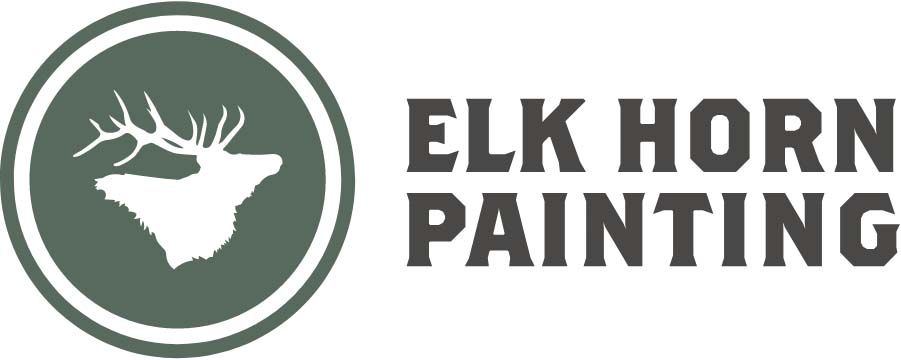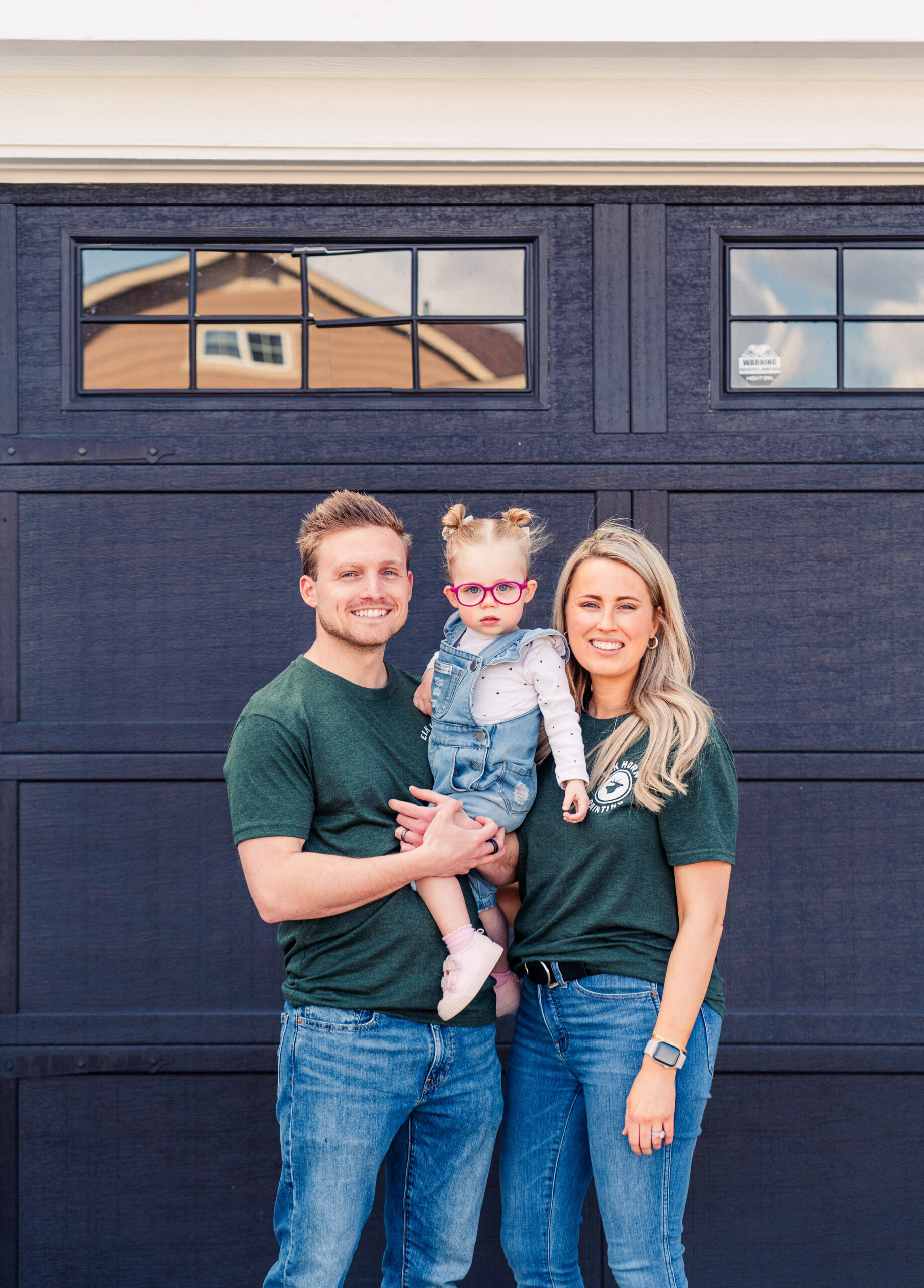Industrial facility painting in Denver protects surfaces from corrosion, chemicals, and extreme temperatures.
Industrial Facility Painting in Denver CO
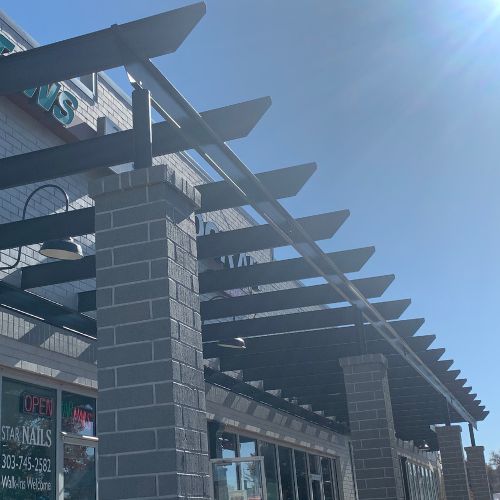
By submitting this form, you agree to receive communications per our privacy policy.
Why Is Industrial Facility Painting Important
for Facilities in Denver CO?
Industrial facility painting involves the application of specialized coatings to protect and preserve large-scale infrastructure such as warehouses, plants, and processing facilities. Unlike commercial or residential painting, which focuses more on aesthetics, industrial painting is engineered for durability, regulatory compliance, and resistance to extreme environmental stressors.
In Denver CO, the demand for high-performance coatings is amplified by the region’s unique climate conditions—intense UV exposure at high altitudes, frequent freeze-thaw cycles, and fluctuating air quality. These factors accelerate corrosion, surface degradation, and equipment wear, especially on exposed metal structures and heavy-use areas.
Industries throughout Denver—including logistics hubs, food processing plants, energy operations, and advanced manufacturing facilities—rely on industrial painting to maintain operational efficiency and regulatory safety standards. Industrial facility painting is an essential investment in the longevity and performance of Denver’s critical operations.
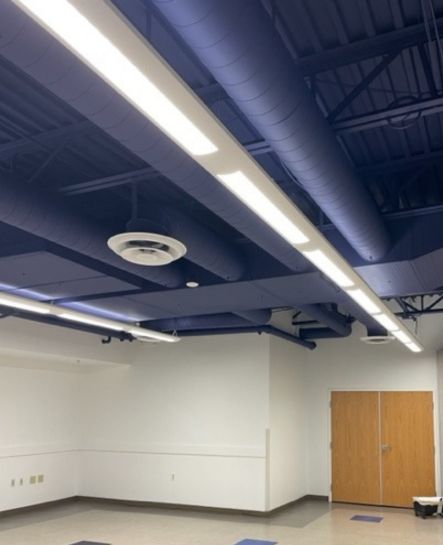
Industrial Painting Safety and Regulatory Compliance in Denver
Industrial painting in Denver isn’t just about surface protection—it’s a matter of strict safety and environmental compliance. Local facilities must meet standards set by OSHA Region 8, EPA regulations, and the Denver Fire Code, particularly when dealing with hazardous materials, high-heat environments, or confined spaces.
Protective coatings play a direct role in compliance. Fire-resistant intumescent paints help meet fire code regulations. Antimicrobial coatings are critical in food processing and pharmaceutical settings, while non-slip floor coatings reduce injury risks in high-traffic work zones.
Compliance also depends on skilled labor. Industrial painters in Colorado are often required to hold certifications such as SSPC-QP1 (for quality surface prep and coating) and confined space entry training, with many projects mandating lead-safe certification for older structures.
Strict regulatory adherence and specialized coatings are non-negotiables for any industrial facility operating in Denver’s heavily regulated environment.
Durable Coating Solutions for Denver’s Industrial Facilities
Industrial facilities in Denver face aggressive environmental conditions that demand more than basic paint. At high altitudes, UV exposure is significantly stronger, accelerating the breakdown of traditional coatings. Winters bring frequent freeze-thaw cycles that cause expansion and contraction, leading to surface cracking, peeling, and corrosion. Add to this the potential for chemical exposure, abrasion, and moisture intrusion, and the need for climate-specific, high-performance coatings becomes clear.
The right industrial coating system must resist all of these forces while maintaining adhesion, thickness, and structural integrity over time. For Denver-based facilities, the most effective options include:
- Epoxy coatings: Known for their chemical and abrasion resistance, ideal for floors, mechanical rooms, and production areas.
- Polyurethane (urethane) coatings: Highly UV-resistant and flexible, commonly used on exterior metal surfaces, tanks, and roofs.
- Elastomeric coatings: Excellent for masonry and concrete surfaces, providing flexibility and waterproofing to withstand thermal movement.
Real-world example: A logistics warehouse in Commerce City experienced premature corrosion on exposed steel beams due to inadequate coating during construction. After applying a zinc-rich epoxy primer and a urethane topcoat, the facility reported zero rust development over a 3-year cycle, even through multiple freeze-thaw seasons.
These coatings are engineered to meet rigorous performance standards, including those set by the ASTM (American Society for Testing and Materials). For example:
In Denver’s climate, durability isn’t a bonus—it’s essential. Using the wrong product can result in coating failure, safety hazards, and unexpected downtime. With the right coating system tailored to your facility’s exposure and usage, you can extend service life, reduce maintenance costs, and ensure compliance with environmental and structural standards. Proper coatings also support long-term operational continuity by minimizing interruptions caused by corrosion control, recoating, or structural repairs—critical factors for industrial facilities operating on tight production schedules or within regulated environments.
The Full Range of Industrial
Facility Painting Services
Industrial facilities in Denver require tailored painting solutions to meet the operational, regulatory, and environmental demands of their spaces. At Elk Horn Painting, we offer a comprehensive suite of industrial painting services designed to protect assets, improve safety, and maintain long-term performance in every area of your facility.
Interior Industrial Painting
Our interior services focus on high-use, high-exposure areas where coatings must endure heat, moisture, vibration, and mechanical wear. We use industrial-grade products to protect:
- Ceilings, beams, and overhead structures
- Piping and conduit systems
- Ductwork, HVAC components, and steel frames
- Machinery and production equipment
- Warehouse and assembly line walls
These coatings are selected not just for durability but also for visibility, compliance, and worker safety, such as marking zones, improving lighting reflectivity, or reducing dust accumulation.
Exterior Industrial Painting
Denver’s climate places heavy stress on exterior surfaces. We apply weather-resistant coatings to protect:
- Storage tanks and silos
- Structural steel, I-beams, and exterior supports
- Facades, masonry, and concrete
- Metal panels, roofing, and trim elements
Our exterior systems often involve multi-coat solutions, including zinc-rich primers and UV-stable topcoats, to combat rust, chalking, and thermal cycling.
Specialty and Industry-Specific Coatings
Some industrial environments require highly specialized solutions. We offer:
- Food-grade coatings approved for USDA and FDA compliance
- Electrostatic painting for a smooth, uniform finish on metal machinery
- ESD-safe coatings for sensitive electronics and cleanrooms
- Anti-graffiti and anti-microbial systems for public-facing or hygienic environments
Ongoing Maintenance Programs
To help facilities in Denver and surrounding areas avoid costly shutdowns, we offer scheduled maintenance painting programs. These services include:
- Routine inspections and touch-ups
- Protective recoating at predetermined intervals
- Seasonal prep and winterization painting
Our goal is to extend the life of your assets while minimizing operational disruption.
Maintaining a professional, compliant, and durable industrial environment requires more than a one-time application. Our comprehensive services ensure every surface—inside and out—is protected year-round. With expert coatings and proactive planning, we help Denver facilities stay operational, safe, and visually sharp no matter the season. Our team understands the unique challenges of industrial operations and works efficiently to minimize disruption, meet tight deadlines, and deliver consistent, high-performance results that align with your facility’s long-term maintenance goals.
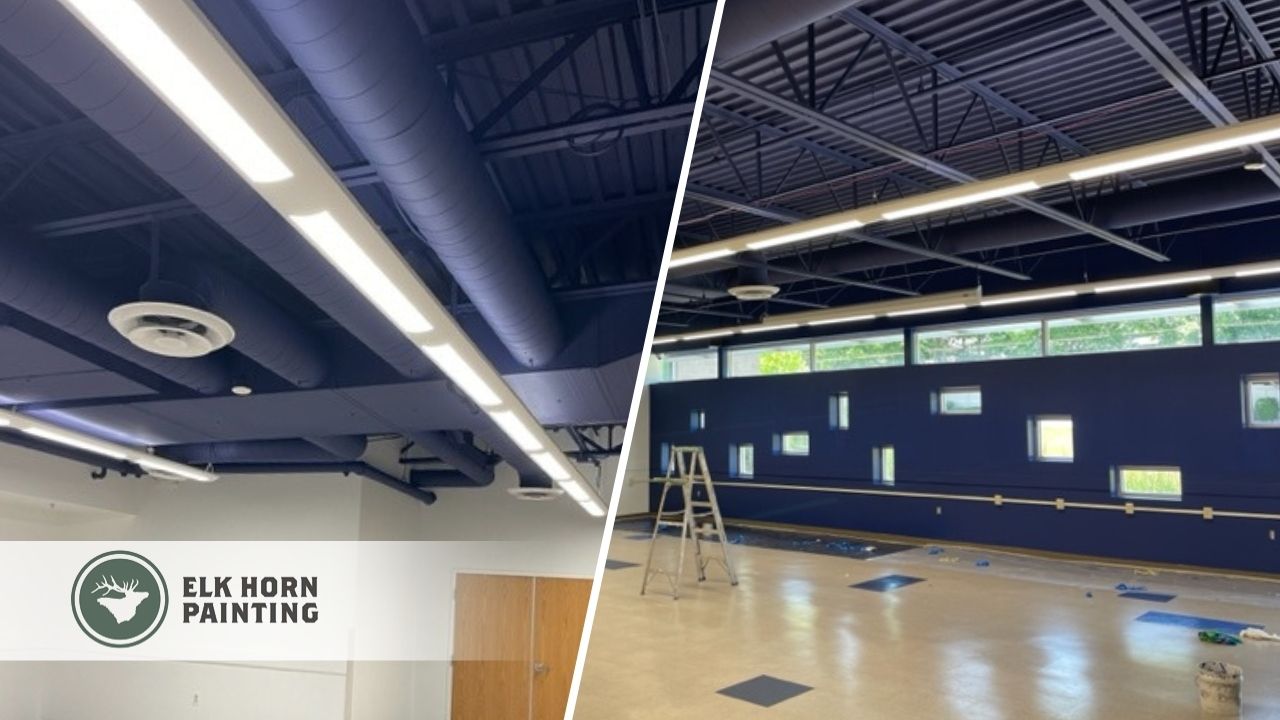
Step-by-Step Process for Industrial
Facility Painting in Denver
Industrial painting projects in Denver demand more than coatings—they require strategic planning, safety precision, and tight coordination to ensure success without disrupting operations. At Elk Horn Painting, we follow a detailed process that keeps your facility compliant, protected, and fully operational.
Step 1: Initial Site Assessment
Every project begins with an in-person inspection. We evaluate environmental factors, substrate conditions, access challenges, and operational schedules. This allows us to determine surface preparation needs, select appropriate coatings, and identify potential safety risks.
Step 2: Customized Project Planning
We work directly with facility managers to create a tailored project timeline. Our team considers:
- Operating hours and shutdown windows
- Workflow patterns and sensitive zones
- Ventilation requirements and containment needs
- Material staging areas and worker access routes
This coordination allows us to minimize interference with daily operations while maximizing productivity and safety.
Step 3: Surface Preparation and Safety Protocols
Before any coatings are applied, we prepare all surfaces using methods that meet or exceed SSPC standards—power washing, abrasive blasting, chemical prep, or mechanical grinding. Safety is fully integrated into the workflow, with job-specific hazard assessments, PPE compliance, and daily briefings.
Step 4: Application and Quality Control
Our certified crew applies primers and coatings per manufacturer specifications and environmental conditions. We track every phase with real-time reporting and perform in-process inspections to ensure uniformity, adhesion, and dry film thickness (DFT).
Step 5: Final Inspection and Turnover
Before closing out, we conduct a detailed walk-through with your team to ensure all specifications are met. Final documentation includes inspection reports, warranty info, and coating system data sheets for future reference.
Sample Project Timeline
With every project, our goal is simple: deliver precision-driven industrial painting with zero compromise on safety, schedule, or quality. We build around your workflow, use coatings engineered for your facility’s environment, and provide full documentation for compliance audits, maintenance tracking, and warranty protection—ensuring long-term performance and regulatory peace of mind.
Our team also provides post-project support, including touch-up planning, coating maintenance schedules, and re-inspection services to help you stay ahead of deterioration or compliance changes. We’re not just painting your facility—we’re protecting its performance, safety, and longevity for years to come.
Effective Surface Preparation
for Industrial Painting in Denver CO
Surface preparation is the most important factor in ensuring coating performance and longevity—especially in Denver, where extreme weather conditions challenge adhesion and durability. At high altitudes, surfaces are exposed to UV degradation, fluctuating temperatures, and airborne contaminants that must be properly addressed before any industrial coating is applied.
At Elk Horn Painting, we treat surface prep as a precision step, not a formality. Our approach varies by substrate, environment, and intended coating system, with methods chosen to meet both performance and regulatory demands.
Key Surface Preparation Methods
- Abrasive blasting is ideal for removing rust, scale, and old coatings on steel surfaces. It creates a clean, textured profile that allows new coatings to anchor effectively.
- Chemical stripping is used on sensitive or complex surfaces where blasting could cause damage, particularly when removing multilayered or chemically resistant coatings.
- Degreasing and power washing are essential for concrete and equipment surfaces, especially where oil, coolant, or dust have built up in industrial settings.
Each of these methods is selected based on the facility’s function and the material being treated. For example, in food-grade environments or cleanrooms, degreasing and sanitizing take priority, while heavy equipment in energy or logistics operations often requires aggressive blasting.
Surface Testing and Verification
Before applying any primer or topcoat, we conduct a series of tests to ensure the substrate is ready:
- Moisture testing is critical on concrete to prevent blistering and coating delamination.
- Adhesion tests determine whether existing coatings are stable enough for recoating.
- Contaminant detection helps identify salts, oils, or environmental pollutants that could compromise performance.
We also measure surface profile depth to match the coating system’s technical requirements. Epoxies, elastomerics, and corrosion-resistant primers each require specific anchor patterns to bond properly.
Standards Matter
Our preparation processes follow SSPC guidelines, which define surface conditions and prep procedures for industrial environments. Adhering to these standards ensures the coating system performs as specified and passes inspection for durability, safety, and warranty eligibility.
In Denver’s unpredictable climate, shortcuts in surface preparation result in failure—peeling paint, rust breakthrough, and rework costs. We don’t take those chances. Proper prep is the invisible but essential layer behind every successful industrial painting project we deliver.
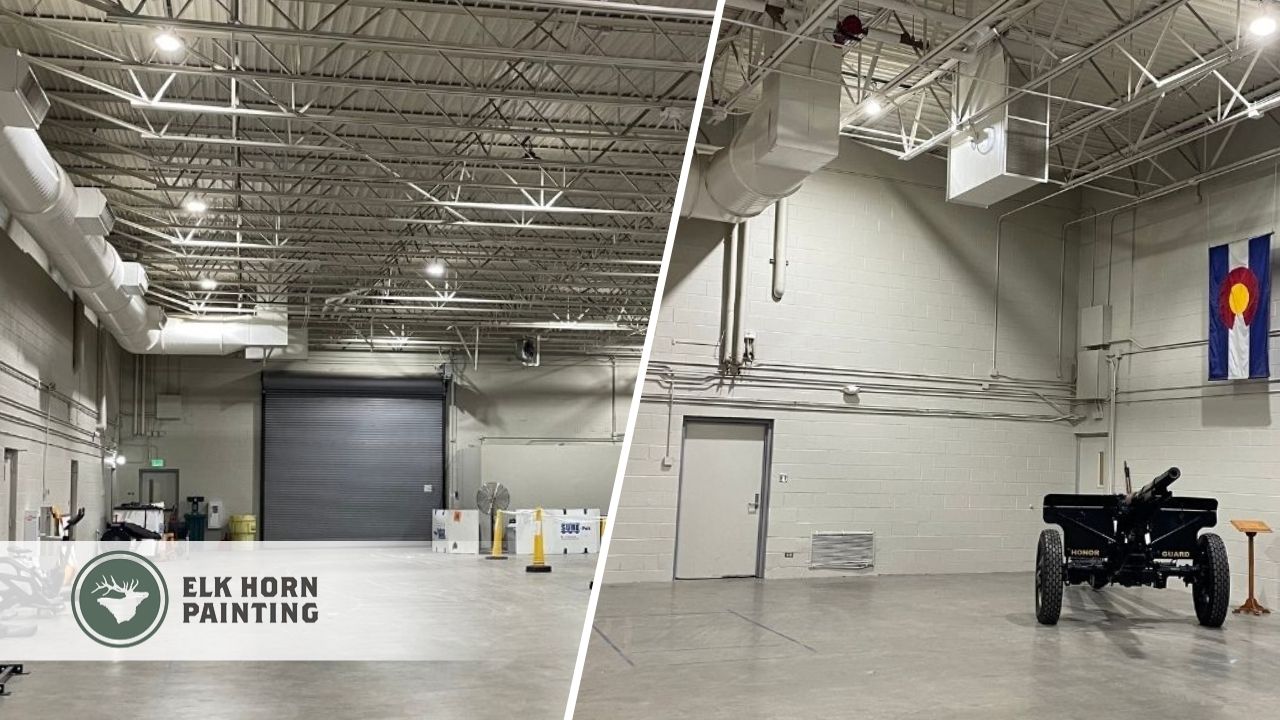
Eco-Friendly Industrial Painting
Solutions in Denver CO
Sustainable practices are no longer optional for industrial facilities—they’re expected. In Denver, where air quality and environmental regulations are strictly enforced, eco-friendly industrial painting solutions are a critical part of responsible facility management. At Elk Horn Painting, we integrate green technologies and compliant systems into every stage of the industrial painting process, without compromising on performance or durability.
Low and Zero-VOC Coatings
Volatile Organic Compounds (VOCs) are found in many traditional paints and coatings, releasing harmful gases that affect air quality and worker health. In enclosed industrial spaces—or in operations near sensitive populations—these emissions can become a serious concern.
We prioritize low-VOC and zero-VOC coating systems that meet or exceed EPA and Colorado Department of Public Health and Environment standards. These water-based and solvent-free products reduce emissions while still delivering excellent resistance to chemicals, abrasion, and UV exposure.
Common applications include:
- Food processing and pharmaceutical facilities requiring USDA or FDA-compliant coatings
- Warehouses with enclosed air circulation systems
- Schools, transit centers, and government buildings adhering to strict environmental policies
Green Certifications and Local Standards
Denver’s commitment to sustainability is reflected in its adoption of strict building and air quality codes. Our coatings and processes are aligned with:
- LEED (Leadership in Energy and Environmental Design) project criteria
- Green Seal™-certified products when applicable
- SCAQMD (South Coast Air Quality Management District) standards, often used as benchmarks for VOC limits
- Local permitting requirements for coatings and surface preparation waste disposal
Responsible Waste Management
Eco-friendly industrial painting isn’t just about what goes on the surface—it’s about everything removed and discarded during prep and application. We implement containment and filtration strategies to ensure:
- Proper disposal of abrasive blasting media, stripping agents, and cleaning solvents
- Air filtration during spraying to capture particulates and overspray
- Ground and drain protection to prevent runoff into soil or water systems
- On-site waste labeling and removal in accordance with Denver regulations
LEED-Compatible Coatings We Use
- Sherwin-Williams Pro Industrial™ Water-Based Catalyzed Epoxy
- PPG Aquapon® WB Epoxy Coating
- Benjamin Moore Ultra Spec® 500 Zero-VOC Interior
- Rust-Oleum Sierra Performance™ coatings (no VOC, HAPs-free)
Whether your facility is seeking LEED certification or simply aligning with environmental best practices, we have the tools and expertise to deliver a clean, compliant, and high-performing finish. Industrial painting in Denver doesn’t just protect surfaces—it protects your people, your community, and your environmental responsibility.
Ensuring Quality in Industrial
Facility Painting Projects
In industrial environments, coatings aren’t just cosmetic—they’re performance-critical. At Elk Horn Painting, quality assurance is built into every phase of our process to ensure coatings perform to specification, meet regulatory standards, and stand up to Denver’s demanding climate conditions.
Our QA protocols are designed to eliminate guesswork and ensure every industrial painting project is delivered with measurable precision.
Multi-Stage Inspection Process
We implement inspections before, during, and after every coating application. These checks allow us to verify surface readiness, application consistency, and coating integrity in real time.
Key QA checkpoints include:
- Surface condition verification: Ensuring substrates are free from contaminants, moisture, or dust before coating.
- Adhesion testing: Pull-off or tape tests confirm bond strength between primer, intermediate, and topcoat layers.
- Dry film thickness (DFT) measurements: Coatings must meet specific thickness tolerances for full protection—too thin and coverage fails, too thick and curing or adhesion may suffer.
- Visual and profile inspection: Confirm uniformity of finish, absence of defects, and proper surface profile for coating performance.
We use precision tools such as DFT gauges, moisture meters, and profilometers, all calibrated to current ASTM and ISO standards.
Compliance with Industry Standards
All of our QA practices align with:
- SSPC (Society for Protective Coatings) guidelines for surface prep and application
- ISO 12944 for corrosion protection of steel structures
- NACE (National Association of Corrosion Engineers) standards for coating system evaluation and inspection
Our painters and inspectors are trained to meet these benchmarks, which are often required for industrial audits and insurance documentation.
Client Walkthrough and Documentation
Before we close out any project, we complete a full walkthrough with your team to verify satisfaction and resolve punch list items. Upon completion, you’ll receive:
- A coating system report with product data sheets and batch info
- Application records including environmental conditions and DFT logs
- A signed quality assurance checklist
- Warranty details and maintenance recommendations
These documents serve as proof of compliance for internal recordkeeping or third-party inspections.
Quality in industrial painting isn’t just about how it looks on day one—it’s about how it performs five, ten, or fifteen years from now. Our QA process ensures you get lasting results backed by documentation and industry-standard excellence.
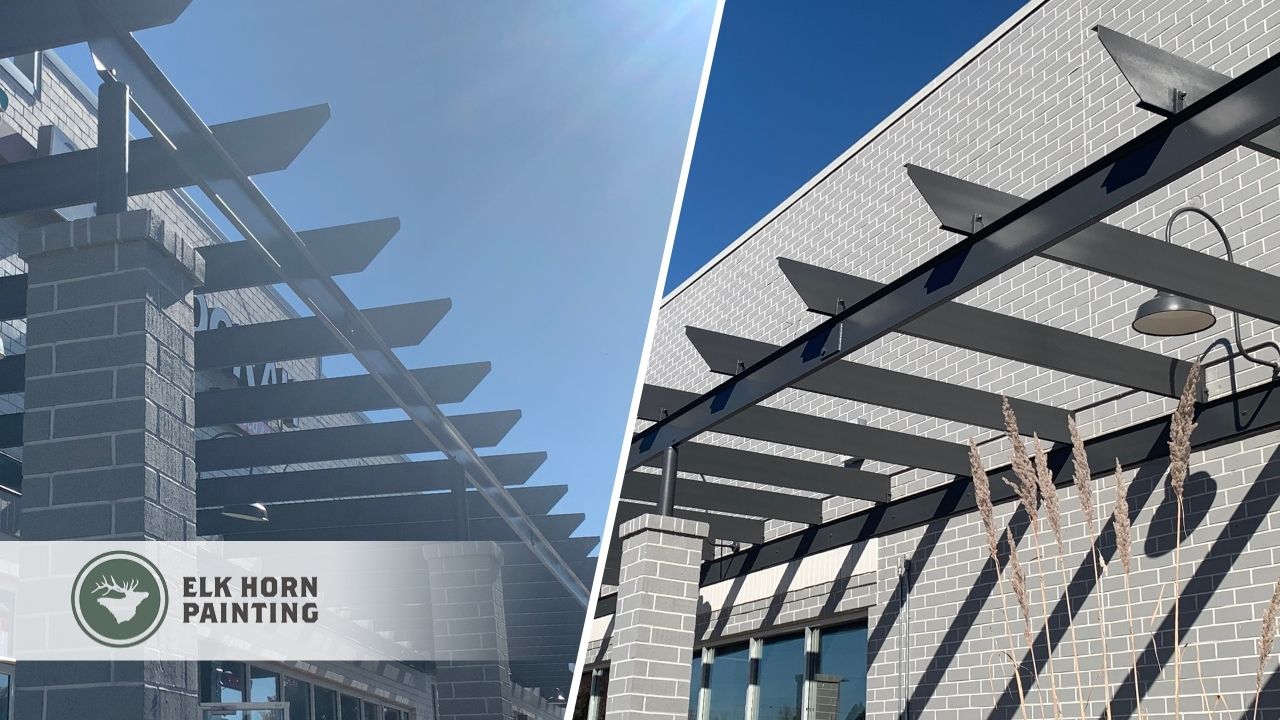
Rapid Response Industrial Painting
Services in Denver CO
In industrial settings, unplanned damage or compliance violations can’t wait for a convenient time to be fixed. Elk Horn Painting offers 24/7 rapid response industrial painting services across the Denver metro area to help facilities resolve emergencies fast—without disrupting operations or missing regulatory deadlines.
Our rapid response crews are equipped to handle urgent projects involving:
- Safety or fire code violations requiring immediate corrective coatings
- Weather-related damage such as rust breakthrough, freeze-related cracking, or peeling from thermal shock
- Abrupt coating failures on floors, tanks, pipelines, or exterior structural steel
- Industrial equipment touch-ups after mechanical repairs or welds
We’re prepared to deploy after hours, on weekends, or even holidays, because industrial problems don’t follow a 9-to-5 schedule. Our team can stage containment, surface prep, and coatings with minimal notice and work during low-traffic or off-shift windows to avoid downtime.
Real-World Example
In late winter 2024, a Denver-area cold storage facility experienced rapid corrosion on exterior loading dock structures due to snow melt and road salt exposure. After an inspection flagged the area as a safety hazard, we mobilized a team within 24 hours. The surface was blasted, primed, and recoated with a cold-cure epoxy system in under 48 hours—before any disruption to shipping operations.
Rapid Response Timeline Benchmarks
Facilities we commonly support on short notice include:
- Distribution centers and warehouses
- Food processing and packaging plants
- Utility and energy sector facilities
- Airports and transportation depots
Whether it’s a last-minute compliance issue or weather-related damage, our rapid response services help you meet safety standards and operational timelines—without cutting corners. When time is critical, Elk Horn Painting delivers professional results, fast.
FAQs About Industrial Facility
Painting in Denver CO
Get a Free Estimate for Industrial Facility
Painting in Denver
When it comes to industrial facility painting in Denver, Elk Horn Painting brings unmatched experience, technical precision, and deep knowledge of local codes and climate challenges. Our team specializes in delivering high-performance coatings that meet regulatory standards and withstand the harsh conditions unique to Colorado’s industrial environments.
Whether you’re operating a food processing plant, logistics hub, or energy facility, we tailor every project to your industry requirements, safety protocols, and operational schedule. From prep to final inspection, we do it right—the first time.
Schedule your free, no-obligation estimate today. We’ll walk your site, recommend the right coatings, and provide a detailed project plan backed by years of experience in Denver. Call (970) 578-3994 to get started.
Industrial Facility Painting Denver
Elk Horn Painting is your trusted Denver painting contractor, specializing in residential, HOA, and commercial painting projects, including multiplexes and office buildings. Proudly serving Denver and all surrounding areas, we are a Google Guaranteed and 5-star reviewed company. Since 2016, our expert painters have been delivering top-quality interior painting and exterior painting services for homes, condos, townhouses, apartments, and commercial buildings. Whether you’re searching for “painters near me,” “painting companies near me,” “interior painters near me,” or “commercial painters,” Elk Horn Painting is the top choice in Denver. Schedule your free quote today and experience the difference!
